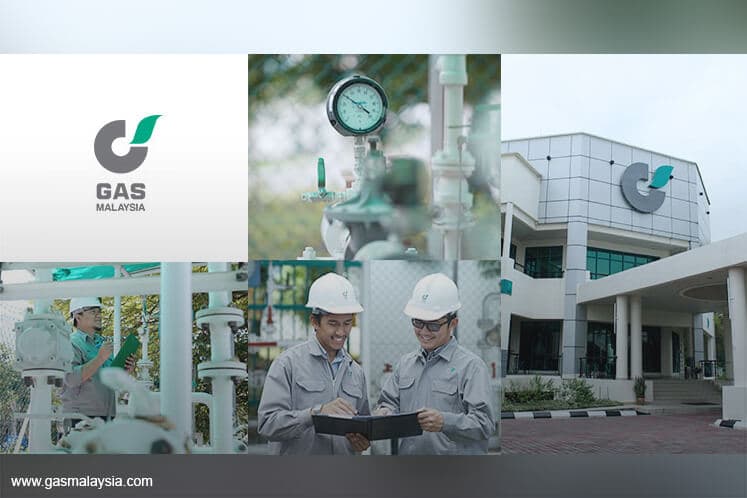
This article first appeared in The Edge Financial Daily on May 12, 2017
Gas Malaysia Bhd
(May 11, RM2.96)
Maintain hold call with a higher target price (TP) of RM2.99: Gas Malaysia Bhd’s first quarter of financial year 2017 (1QFY17) net profit expanded 8% year-on-year (y-o-y) to RM34 million, due mainly to write-back of receivable impairment and higher sales volume. It wrote back RM1 million of impairment on trade receivables in 1QFY17 against a charge of RM5.5 million in 1QFY16. Its gross profit also rose 4.9% y-o-y, in line with our estimate of 4% to 4.5% growth in sales volume in the quarter.
We expect Gas Malaysia’s earnings to improve in the coming quarters, driven mainly by seasonally higher sales volume. On top of that, its other revenue sources, such as tolling fees and sales of liquefied petroleum gas, should also improve in the coming months due to seasonality.
While its sales volume causes fluctuations in quarterly earnings, Gas Malaysia’s longer-term earnings are driven by its asset size. Under the incentive-based regulation (IBR) framework, its pipeline earnings are a function of rate of return allowed and the size of the assets (regulatory capital value). The company has to date committed to a total of RM220 million (equivalent to 20% of its property, plant, equipment book value) for capital expenditure. This should raise its asset size and increase the absolute profit under the IBR framework.
Despite the seemingly stable earnings outlook, its earnings profile may change in 2018 once the third-party access (TPA) is implemented. Currently, Gas Malaysia is the owner of its pipeline assets and the sole gas distributor to users that consume less than five million standard cu ft per day of gas. Its regulatory capital includes both the book value of its pipeline assets as well as an assumption of working capital required for its distribution business.
After the TPA kicks in, other parties will be allowed to access Gas Malaysia’s pipelines to distribute gas and the company’s distribution business could cease to be regulated by the IBR. As such, its regulatory capital should decline as the working capital that belongs to the distribution business will be separated from the pipeline assets, which should lower its regulatory earnings. However, the distribution business will be a new source of earnings for the company; we think this could offset the decline in regulatory earnings.
The gas distribution business will face competition eventually due to new entrants. In the long term, the stock’s price-earnings (PE) could derate as Gas Malaysia currently holds the monopoly. In the short term, however, we think the risk of a PE de-rating is low because the company will still be the sole gas distributor to its existing customers in the near future. This is the reason for us to retain our “hold” call. The key upside/downside risk to our “hold” call is higher/lower-than-expected earnings after the TPA implementation. — CIMB Research, May 10